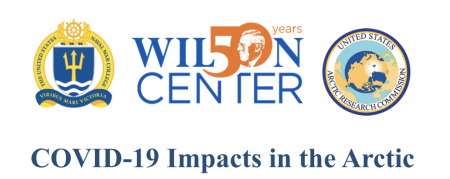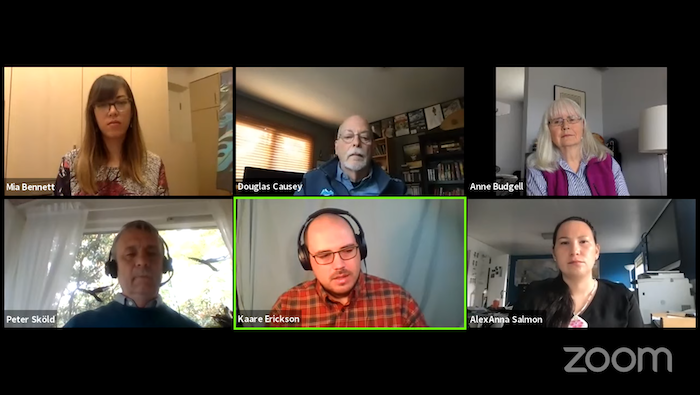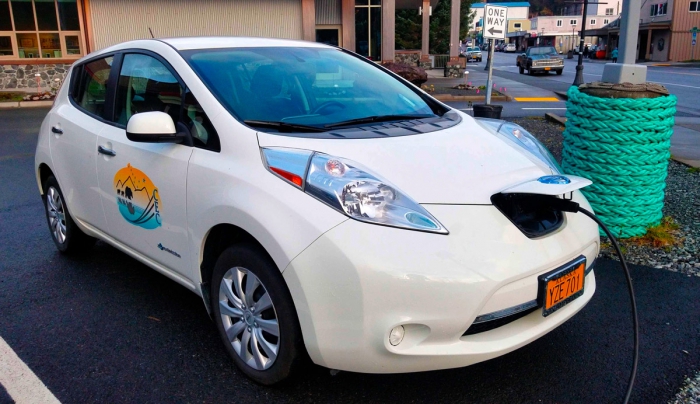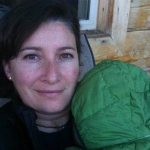By: Cheryl Rosa, Deputy Director and Anchorage-based Alaska Director of the United States Arctic Research Commission (USARC).
On 19 and 29 May 2020, the United States Arctic Research Commission (USARC), partnering with the US Naval War College and the Wilson Center's Polar Institute hosted an online "virtual" conference to discuss the impacts of the COVID-19 pandemic on the Arctic region.

Over 1,100 attendees registered for the event which included 10 moderated panel discussions involving an international group of 46 panelists. Panelists included politicians, diplomats, medical doctors, Indigenous leaders from governments, corporations, universities, non-governmental organizations (NGOs), associations and other entities, military leaders, scientists from academia and the government, other government employees, journalists, scholars, and other fields. The agenda, panelists, moderators, and the titles of the sessions, along with other pertinent information can be found on the Wilson Center web page, Virtual Conference | COVID-19 Impacts in the Arctic. The two-day event can be viewed on the US Naval War College's YouTube channel.
USARC Commissioner, Jackie Richter-Menge, participated in a panel discussion on Arctic Climate and Environmental Change. USARC Chairman Ulmer held a conversation with Rear Admiral Gallaudet, the Assistant Secretary of Commerce for Oceans and Atmosphere and Deputy NOAA Administrator, in an Arctic Science Ministerial Subpanel discussion of the International Arctic Governance session. USARC Executive Director, John Farrell, and Deputy Director, Cheryl Rosa, played major roles in organizing the sessions, securing the participants, and moderating sessions.
Panelists in the Arctic History of Viral Epidemics and Pandemics discussion, captured in the screen shot below, (clockwise from top left) include moderators Mia Bennett, University of Hong Kong and Douglas Causey, University of Alaska Anchorage; and discussion panelists Anne Budgell, author and journalist, St. John's, Newfoundland, Canada; AlexAnna Salmon, Village Council President, Village of Igiugig, Alaska; Kaare Erickson, North Slope Science Liaison, Ukpeaġvik Inupiat Corporation; and Peter Sköld, Professor of History, Sámi Culture, and Society Development, Umeå University, Sweden.

On 16 and 17 June 2020, the Commission and the Alaska Center for Energy and Power (ACEP) co-hosted a free Virtual Alaska Electric Vehicle (EV) Workshop to bring together technical and academic experts and policy makers to share information, research findings, emerging research questions, and best practices relevant to EVs in Alaska and the Arctic. The Virtual Alaska EV Workshop explored the technical and economic potential of EVs in Alaska and the Arctic, contributed to a collective research vision for the circumpolar North, and showcased needs and opportunities in the Alaska EV sector.

The workshop included an introduction and four panel sessions covering: the policy environment, charging behavior, operations and performance, and grid impacts of EVs and EV service equipment (EVSE). Each session had a series of short presentations, followed by a moderated panel discussion and question and answer with the audience. Presentations can be viewed on the workshop webpage. A workshop report will follow in late summer.
About the Author
 Dr. Cheryl Rosa is Deputy Director and Anchorage-based Alaska Director of the United States Arctic Research Commission (USARC). Dr. Rosa is trained as a Wildlife Veterinarian and Wildlife Biologist and has worked with subsistence communities on the North Slope and in the Russian Far East on a wide range of studies involving wildlife health and zoonotic disease, marine mammal stranding response, subsistence food safety, and oil spill/offshore discharge research. Presently, she is involved in running USARC's Alaska Rural Water and Sanitation Working Group, the Arctic Renewable Energy Working Group, and the Arctic Mental Health Working Group. She received a PhD in Biology from the University of Alaska Fairbanks, a doctorate in Veterinary Medicine from Tufts University, and a bachelor's in Animal Science and Zoology from the University of Massachusetts Amherst.
Dr. Cheryl Rosa is Deputy Director and Anchorage-based Alaska Director of the United States Arctic Research Commission (USARC). Dr. Rosa is trained as a Wildlife Veterinarian and Wildlife Biologist and has worked with subsistence communities on the North Slope and in the Russian Far East on a wide range of studies involving wildlife health and zoonotic disease, marine mammal stranding response, subsistence food safety, and oil spill/offshore discharge research. Presently, she is involved in running USARC's Alaska Rural Water and Sanitation Working Group, the Arctic Renewable Energy Working Group, and the Arctic Mental Health Working Group. She received a PhD in Biology from the University of Alaska Fairbanks, a doctorate in Veterinary Medicine from Tufts University, and a bachelor's in Animal Science and Zoology from the University of Massachusetts Amherst.
